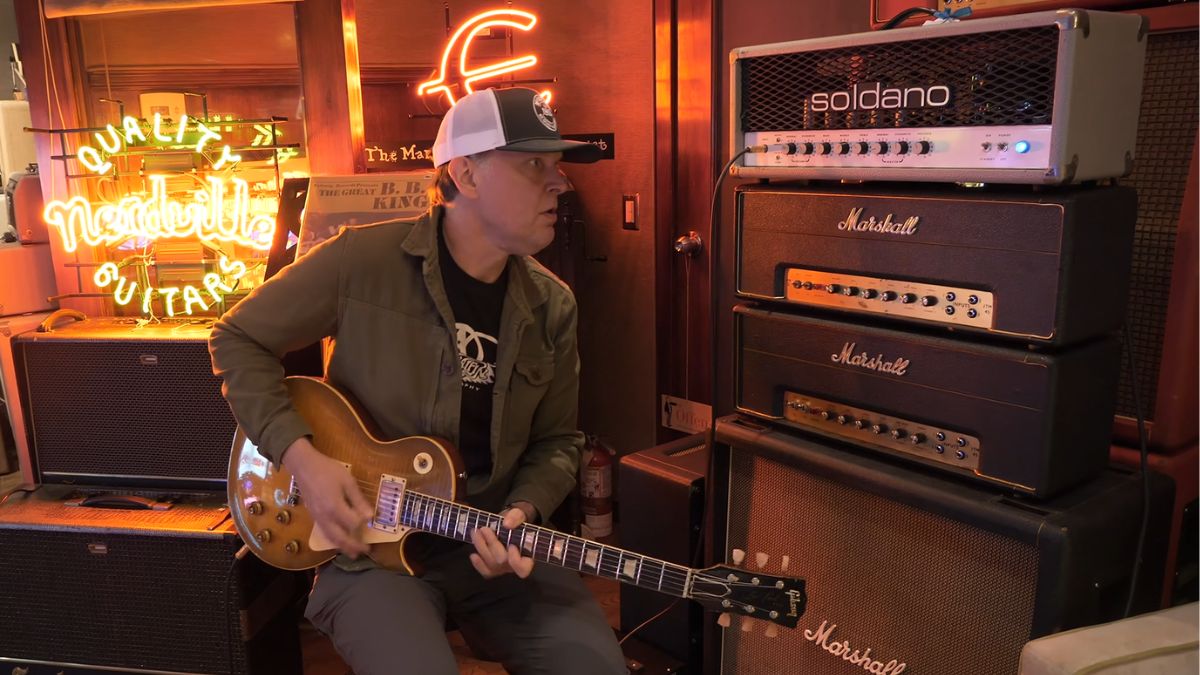Kaki King: ”All the songs with love and drama that take you to the good, sad place are super-hard to play – it’s so hard to replicate that again and again”
The latest record from the Atlanta-born acoustic innovator, Modern Yesterdays, is a deep-dive into the ambient

All the latest guitar news, interviews, lessons, reviews, deals and more, direct to your inbox!
You are now subscribed
Your newsletter sign-up was successful
Kaki King has become one of the modern masters of fingerstyle acoustic, but – in her case – it’s what she does with the techniques, in conjunction with otherworldly atmospheres and the mind-melting visuals triggered via her Ovation, that sets her well and truly apart as a solo instrumentalist.
Here’s the lowdown on her latest.
Congrats on the new release! What gear are we hearing on the album?
”You’re hearing mainly my Ovation Adamas with the “human pedalboard” of [co-producer] Chloe Alexandra Thompson on sound design. She was using Ableton, Max and other programs to process the acoustic in ways I’ve never heard before. I’ve forgone pedals in favor of plug-ins that I run with Mainstage, mapping an expression pedal to absolutely everything that I can.”
What are the main tunings you’re using this time round?
”Good ol’ DADFAD, which I’ve loved for a decade or so now. There’s some stuff in BF#C#EAB, a touch of CGDEAD, and then after that it just gets weird.”
What would you say is the secret to great guitar tones?
All the latest guitar news, interviews, lessons, reviews, deals and more, direct to your inbox!
”Well, I hear the influence of a world completely breaking down before my eyes, so right now I think the greatest tone ever recorded is on some dusty reel-to-reel in a warehouse that will be burned down in the final battle for survival. Or just a routine forest fire.”
Any technique that looks complicated is usually something pretty simple that has been sped up
There’s a lot going with both hands at any given time. How did you master the slaps, taps and harmonics of modern fingerstyle?
”All the songs with love and drama that take you to the good, sad place are super hard to play – it’s so hard to replicate that again and again. To give yourself that original feeling of why you wrote it and to translate that to a performance is such a challenge because you can’t fake it.
”Any technique that looks complicated, however, is usually something pretty simple that has been sped up. You could say I just slapped and tapped and fingerpicked really slowly and just kept pushing that bpm higher until it sounded more complicated than necessary!”
Finally, are there any new licks you’ve been working on that readers can try at home?
”I learned this past Halloween that they now make mini Tootsie Pops! That’s definitely something I can recommend for everyone to work on.”
- Kaki King's Modern Yesterdays is out now via Cantaloupe.
Amit has been writing for titles like Total Guitar, MusicRadar and Guitar World for over a decade and counts Richie Kotzen, Guthrie Govan and Jeff Beck among his primary influences as a guitar player. He's worked for magazines like Kerrang!, Metal Hammer, Classic Rock, Prog, Record Collector, Planet Rock, Rhythm and Bass Player, as well as newspapers like Metro and The Independent, interviewing everyone from Ozzy Osbourne and Lemmy to Slash and Jimmy Page, and once even traded solos with a member of Slayer on a track released internationally. As a session guitarist, he's played alongside members of Judas Priest and Uriah Heep in London ensemble Metalworks, as well as handled lead guitars for legends like Glen Matlock (Sex Pistols, The Faces) and Stu Hamm (Steve Vai, Joe Satriani, G3).

